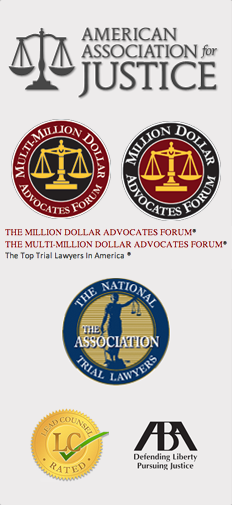Since there are so many factors that will affect the amount of time it will take to resolve each case, there is no good way to approximate how long your case might take without knowing more details. In some cases, it may be possible to reach a satisfactory settlement relatively early on in the process. In other cases, it may be necessary to take a case to trial, which requires substantially more time to work through. In any case, an experienced attorney will be able to prepare you for what lies ahead as you pursue compensation for your child’s pain and suffering.
If your child was born with cerebral palsy or another birth defect as the result of medical malpractice, you should speak with one of the birth injury attorneys with the Driscoll Firm about what to expect during the claims process. To discuss your claim with one of our attorneys, please call our offices at (800) 900-7704 today.
Classifying the type and severity of cerebral palsy (CP) is important to providing the patient the best quality of life possible for his or her condition. For parents, CP categories enable them to understand the medical needs of their child, while school administrators are able to comprehensively grasp the child’s learning abilities.
There are a variety of ways that CP is grouped. Here are a few of them:
- Severity – A child’s CP can be categorized into mild, moderate, severe, or no CP (CP was acquired after the brain’s development was completed, therefore is instead classified under the circumstances that caused it- such as traumatic brain injury)
- Topographical distribution – CP is grouped based on the affected areas of the body. Paraplegia, for instance, is a type of cerebral palsy that affects both legs
- Motor function – CP is categorized based on how the condition affects the body’s motor function
If you believe your child’s CP has resulted from medical malpractice, the legal team at the Driscoll Firm might be able to help you seek the compensation your family needs. Call us at (800) 900-7704 for a free assessment of your case.
Marlana VanHoose was born blind and with Cytomeglo virus which caused her to develop cerebral palsy. Cytomeglo virus is known to be a directly caused by a number of prenatal and the birth defects inhibited her health severely, giving her only a few years to live. Fortunately, she is now a healthy 19-year-old that has taken her disabilities and let them strengthen her.
The teen became a star overnight as she travels from place to place performing at sporting events and presidential nominations. Earlier this year, the teen sang the “Star Spangled Banner” at the announcement of Rand Paul’s presidential campaign. Marlana recently sang at the opening of the 2015 NBA final against the Golden State Warriors and Cleveland Cavaliers.
After she recovered from the worst of her illnesses, Marlana turned to music. She was teaching herself the piano by the time she was two. She is now a member of the Artist Music Guild, winning the 2012 recipient for New Artist of the Year and Young Artist of the Year. The Kentucky native is an active member of her church and still sings at religious and sporting events across the nation.
The young singer is drawing attention and awareness to cerebral palsy. However, her story is unlike many of the children born with the debilitating condition. For most of the children born with cerebral palsy due to the negligent and dangerous medical practices of physicians, their lives are significantly shortened and made difficult. At the Driscoll Firm, we believe that these medical professionals should be held accountable for their actions. If your child was born with birth defects caused by negligent medical staff, please call (800) 900-7704 today.
Anticonvulsants such as topiramate are sometimes prescribed to cerebral palsy patients suffering from seizures. A recent study published in Pediatrics stated that the anticonvulsant topiramate may trigger or aggravate an eating disorder among patients using it, including those with cerebral palsy, according to a report published in Medscape.
The study recorded seven girls aged 13 to 18 who had developed eating disorders or had their eating disorder worsen after taking topiramate. Researchers believe that because of the drug’s appetite-suppressant effects, physicians and parents should be aware of the risk of weight loss when taking the drug.
Cerebral palsy is a lifelong condition that varies in severity and can be treated in many different ways, including prescription drugs and physical therapy. The effectiveness of drugs will be a consistent concern as you raise your child with cerebral palsy, but you should not be held responsible for the costs of this medical treatment. The negligent doctor or medical facility that contributed to your child’s birth injury may be held financially accountable for any current and future treatment for your child.
Learn more about taking action for the funds your child needs by calling the Driscoll Firm at (800) 900-7704 today.


